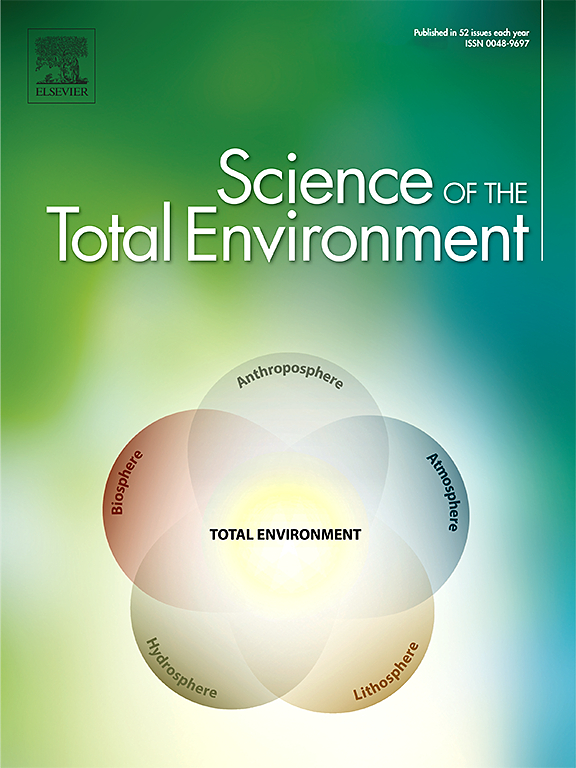Microbial dynamics and CO consumption enhancement via co-digestion with carbohydrate-rich synthetic wastewater
IF 8.2
1区 环境科学与生态学
Q1 ENVIRONMENTAL SCIENCES
引用次数: 0
Abstract
Due to the toxicity and low mass transfer of CO, its efficient conversion is crucial for syngas biomethanation. In the present study, anaerobic co-digestion of CO and carbohydrate-rich synthetic wastewater was conducted to facilitate the CO conversion performance, followed by microbial analysis with and without methanogenic activity inhibition (namely, digestion and acidification systems). The results indicated that glucose addition in co-digestion system dramatically enhanced CO consumption. The maximum consumption rate (μ-max) of CO increased by about 65 % with adding glucose. However, CO presented partial inhibition on methanogenic activity without declining methane yield. Microbial analysis showed that microbial diversity increased in co-digestion systems. Hydrogenotrophic methanogens from Methanobrevibacter became dominant in all individual and co-digested systems. Methanogenic activity inhibited community proved the bacteria mainly mediated CO conversion, and glucose addition promoted the growth of acetogenic bacteria from Firmicutes, relating to the enhancement in CO consumption. Species from Synergistota worked as the main syntrophic oxidizers, along with Defluviitoga, Syntrophomonas, and Syntrophaceticus, assisting methane production by hydrogenotrophic methanogens. The outcomes in the present study supply an efficient strategy for synergetic treatment of syngas (CO-rich gas) and organic waste/wastewater for energy recovery.

求助全文
约1分钟内获得全文
求助全文
来源期刊

Science of the Total Environment
环境科学-环境科学
CiteScore
17.60
自引率
10.20%
发文量
8726
审稿时长
2.4 months
期刊介绍:
The Science of the Total Environment is an international journal dedicated to scientific research on the environment and its interaction with humanity. It covers a wide range of disciplines and seeks to publish innovative, hypothesis-driven, and impactful research that explores the entire environment, including the atmosphere, lithosphere, hydrosphere, biosphere, and anthroposphere.
The journal's updated Aims & Scope emphasizes the importance of interdisciplinary environmental research with broad impact. Priority is given to studies that advance fundamental understanding and explore the interconnectedness of multiple environmental spheres. Field studies are preferred, while laboratory experiments must demonstrate significant methodological advancements or mechanistic insights with direct relevance to the environment.
 求助内容:
求助内容: 应助结果提醒方式:
应助结果提醒方式:


